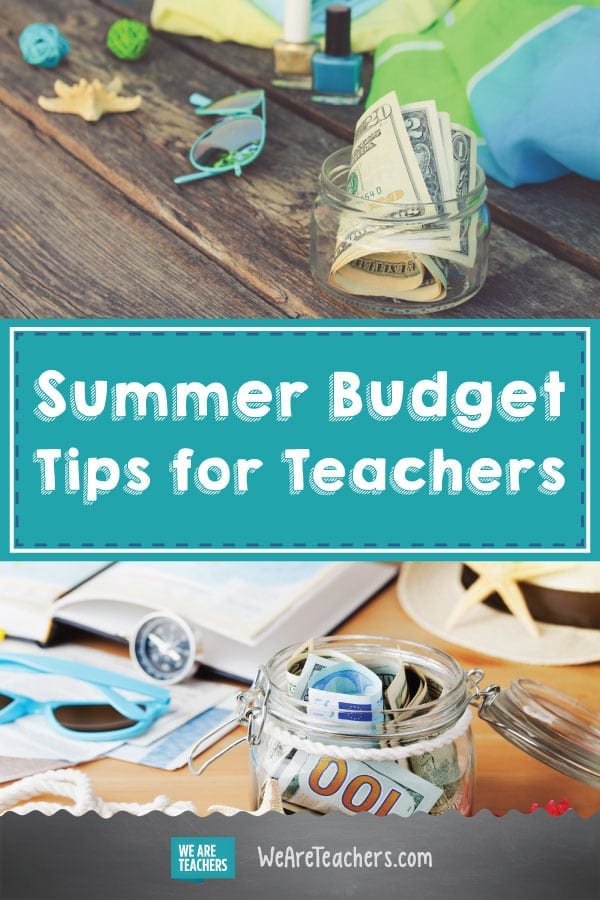Being a teacher comes with many positives and negatives. It’s a difficult but incredibly rewarding career path to pursue. One of the benefits is the opportunity to take summers off (assuming you don’t teach year-round).
Unfortunately, having this time off also comes with one clear drawback: You may not receive your normal pay during this time. The good news is there’s no reason to worry. There are several ways to set up your summer budget to help you maximize your earning all year long.
What if I take my pay over the course of 12 Months?
In some cases, school districts offer teachers the option to spread their salary over 12 months rather than only receiving paychecks while they’re in school. This option takes your annual salary that would typically be spread out over the 10 months that school is in session and extends it across all 12 months of the year.
The downside to this option is that the paychecks you receive each month are slightly less than what they would be if you weren’t paid over the summer. For example:
Annual salary: $55,000
10-month option: $5,500/month
12-month option: $4,583/month
The benefit of the 12-month option is that you’ll have a consistent stream of income available to you year-round. If the monthly paychecks you’re receiving aren’t quite enough to cover living expenses, you have a few options to consider.
Option One
Take on a part-time job or a side hustle year-round. This might mean that you pick up freelance writing or tutoring after school. Alternatively, you may look outside of your profession to find a part-time job, like working on the weekends at a local animal shelter or at a small business you love. Having a part-time job can help to boost your monthly income, and if you find something that isn’t seasonal, you’ll be able to count on increased monthly income all year long.
Check out our list of ways teachers can make extra money here.
Option Two
Take the 12-month payment plan but work a job over the summer to boost your savings or hit other financial goals throughout the year. Just because you’re receiving a paycheck over the summer doesn’t mean you don’t have the opportunity to earn more money in your time off (after you’ve recovered from the school year, of course).
See our list of companies that hire teachers over the summer here.
Set a summer budget if you don’t take the 12-month option.
Maybe your school district doesn’t offer a 12-month plan. That’s okay! Receiving paychecks 10 months a year may create a budgeting challenge, but it’s nothing that you can’t overcome. In fact, choosing the 10-month payment option through your school district might boost your budgeting skills.
If you’re going this route, consider the following few steps to get a handle on your budget and maximize your monthly cash flow.
Step One
Write out a budget. I’m a firm believer that writing down your expenses helps to solidify what they are. It also prevents unnecessary spending in some of the more flexible areas of your budget, like eating out.
Step Two
Trim any excess expenses. If there are extra expenses that you don’t feel you need or aren’t in line with your spending values, cut back. This will help you stretch your paycheck to cover the summer months when you’re not receiving your regular income.
Step Three
Determine what the “extra” is in your monthly paychecks. To do this, subtract your monthly expenses from your monthly checks. The difference is the “extra.”
Step Four
Set up a savings account for the “extra” in your paychecks and automatically deposit that amount into savings each time you get paid.
Step Five
When summer rolls around, “pay” yourself out of the savings account, just like when you receive a paycheck during the school year.
Get your family involved in sticking to your summer budget.
Just because you’re the one starting this financial mission doesn’t mean you have to go it alone. Getting your family involved can be a great help to you during the summer months.
Talk to your spouse, partner, close friends, and kids about your money goals and how they fit into them. This will help set a clear spending expectation, and you’ll be more likely to hold yourself accountable if family members know what your spending flexibility is during the summer.
Focus on financial wellness all year.
Whether you’re getting paid 10 or 12 months out of the year, it’s important to always be focusing on financial wellness. Creating a budget that lines up with your values is a good first step.
Setting financial goals is a large part of financial wellness and can also help you maximize your paychecks over the course of the year. For example, a few positive goals to work toward might be building an emergency savings, paying down debt to reduce your total monthly expenses, or putting money toward your retirement to ensure you’ll always be financially taken care of.
Share your summer budget tips in our WeAreTeachers Helpline group on Facebook.
Plus, five financial moves all new teachers should make and how much should I save for retirement?


